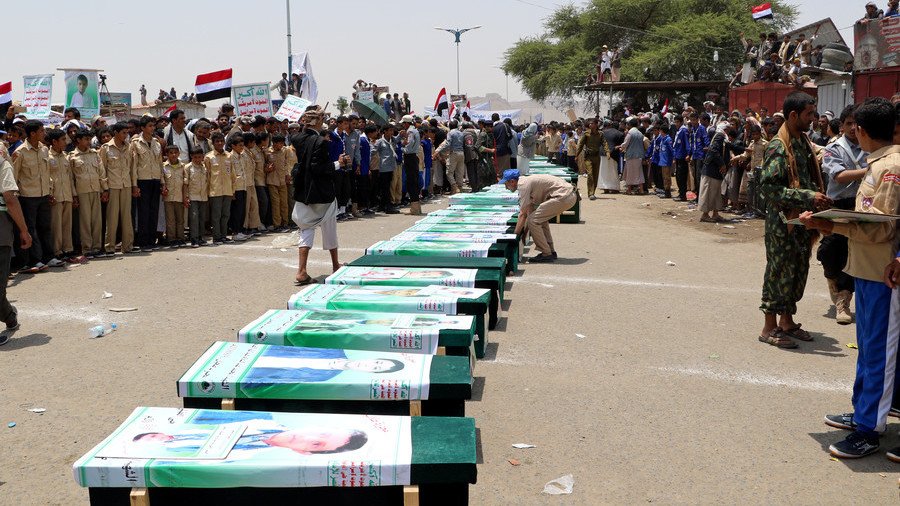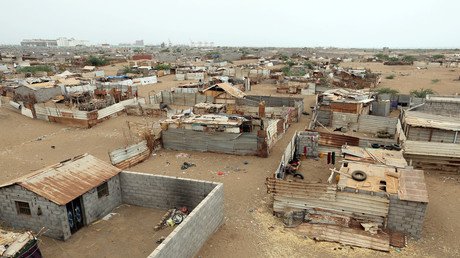UN Human Rights council renews probe into Yemen despite Saudi objections

The UN inquiry into the human rights situation in Yemen has been extended for a year despite the Yemen’s government refusal to cooperate further and Riyadh’s allegations that the probe is biased against the Kingdom.
The resolution to extend the probe into alleged human rights violations in Yemen was adopted on Friday by the UN Human Rights Council (UNHRC), with 21 countries voting for it, 8 against and 18 abstaining.
The decision comes amid strong criticism from Saudi Arabia and the Saudi-backed Yemeni government, who accused the UN body of bias. Ahead of the UNHRC vote, Riyadh yet again condemned the UN report on Yemen, published late in August, accusing the international body of turning a blind eye to “the countless violations perpetrated by the Houthis, both against the Yemeni people and against the kingdom.”
The Saudi-backed Yemeni government, in turn, refused to cooperate further with the UN experts.
“The government refuses to extend the [UN] mission's mandate because its findings, outlined in the report, did not meet the standards of professionalism and impartiality or the basic principles of the United Nations,” the government said in statement on Thursday.
The Saudi-led coalition, backed by several Western nations including the US, got involved in the Yemen conflict back in 2015 in an attempt to reinstate the ousted President Abdrabbuh Mansour Hadi. The coalition embarked on a wide-scale bombing campaign and imposed strict naval blockade to curb alleged weapons smuggling.
More than 10,000 people have been killed in the conflict and 8.4 million are on the brink of famine in Yemen, according to the UN. Most of the documented civilian casualties were caused by the coalition bombings, which targeted “residential areas, markets, funerals, weddings, detention facilities, civilian boats and even medical facilities,” according to August report.
Congress resolution aims to force Trump into ending US involvement in Yemen War https://t.co/7EX9OCePfspic.twitter.com/E9O1RBzEuP
— RT (@RT_com) 27 сентября 2018 г.
Criticism of the UN report was condemned by other rights groups, namely Human Rights Watch (HRW), which accused Riyadh last week of waging a “campaign to discredit and undermine a UN investigation into abuses by all of Yemen's warring parties.” The ultimate goal of the Saudis was to “avoid scrutiny of the coalition's own actions in Yemen,” HRW stated.
The UN insists that its experts investigate the situation in Yemen impartially and highlight abuses committed by all the parties. The August report, for example, blamed the Houthi rebels and their allies, remnants of Yemeni military, for “indiscriminate” use of wide-area-of-effect weaponry in urban warfare. It also blamed the majority of civilian casualties in Ta'izz, a city torn between several warring parties, on the Houthis, adding, however, that further investigation was needed.
Think your friends would be interested? Share this story!















